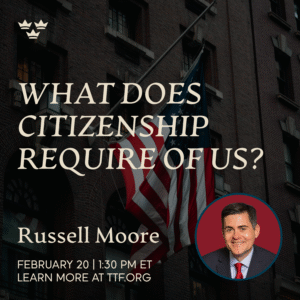In the matter of just 50 days, a fissure has widened into a split; the split has become a gap; and the gap is becoming a gulf. I have in mind the extraordinary contradiction between what President Obama says and what he does.
Consider a partial list, starting with earmarks. During the campaign, Obama said, “the truth is, our earmark system — what's called pork-barrel spending in Washington — is fraught with abuse. It badly needs reform — which is why I didn't request a single earmark last year, why I've released all my previous requests for the public to see, why I've pledged to slash earmarks by more than half when I am President of the United States.” And as ABC's Jake Tapper pointed out, after John McCain picked Governor Sarah Palin as his running mate, Obama criticized her for having been of two minds on earmarks. “When you have been taking all these earmarks when it is convenient and then suddenly you are the champion anti-earmark person,” Obama said, “that is not change, come on. I mean, words mean something.”
Yet yesterday, Obama signed rather than vetoed a massive, $410 billion omnibus spending bill — which contained more than 8,500 earmarks. Adding chutzpah to his hypocrisy, Obama told reporters, “The future demands that we operate in a different way than we have in the past. So let there be no doubt: this piece of legislation must mark an end to the old way of doing business and the beginning of a new era of responsibility and accountability that the American people have every right to expect and demand.” This is the fiscal version of St. Augustine's prayer, “Lord, make me chaste — but not yet.”
Second, Obama made bi-partisanship a cornerstone of his campaign. It was he, we were told, who would repair the breach and “turn the page.” It is he who wrote that “genuine bipartisanship assumes an honest process of give-and-take” and that the majority must be constrained “by an exacting press corps and ultimately an informed electorate” to “negotiate in good faith.” Yet Republicans have been shut out from writing and offering substantive input into key legislation. Obama has so far demonstrated no interest in authentic bi-partisanship; he is allowing Speaker Pelosi and Majority Leader Reid to muscle through their agenda, even at the cost of losing almost every elected Republican in the United States Congress.
Third, Obama made ethics reform central to his candidacy. In arguably the most important speech of the campaign, the Jefferson-Jackson dinner in Iowa in 2007, Obama said, “[Lobbyists] have not funded my campaign, they will not work in my White House…” Upon taking office, Obama made quite a show of announcing new ethics rules barring lobbyists from working in the administration on issues that fell under their lobbying bailiwick. Yet Obama immediately allowed waivers for lobbyists working on issues that fell under their lobbying bailiwick.
Fourth, Obama praised his Administration for putting an end to “phony accounting.” His budget, we were told, was an honest budget, without gimmicks, numbers you could trust. Except that we learned that when President Obama, in his speech to a joint session of Congress, said his Administration had identified “$2 trillion in savings,” it turns out that $1.6 trillion of the “savings” Obama is claiming are based on the surge in Iraq continuing for 10 more years — even though on February 27, in a speech at Camp Lejeune, North Carolina, Obama said, “Let me say this as plainly as I can: By August 31, 2010, our combat mission in Iraq will end,” and the Status of Forces Agreement negotiated by the Bush Administration, which calls for all U.S. forces to be out of Iraq, is set for December 2011.
Fifth, President Obama has continually presented himself as trans-ideological, the answer to “worn-out dogmas” and “worn-out ideas” and “stale political arguments.” He doesn't subscribe to an “old, discredited philosophy.” It is his critics, he insists, who do. It is they who are intellectually rigid, dogmatic, captives of old ways of thinking. Obama is the one who, like Lincoln, will “think anew and act anew.”
Except that it is Obama himself who displays rutted thinking. It is he who is championing worn-out dogmas. And it is he who is advancing a deeply ideological agenda. Unlike Bill Clinton and Tony Blair, who demonstrated policy creativity and attempted to advance “third way” solutions, President Obama is turning out to be utterly and conventionally liberal, embracing record-breaking spending programs and record-breaking tax increases and giving us a record-breaking deficit and record-breaking debt. Rather than par down his liberal aims in the light of the economic crisis we face, he is enlarging them.
Sixth, Obama has decried “the smallness of our politics — the ease with which we're distracted by the petty and trivial, our chronic avoidance of tough decisions, our preference for scoring cheap political points instead of rolling up our sleeves and building a working consensus to tackle the big problems of America.” He has said to his fellow citizens, “Let us resist the temptation to fall back on the same partisanship and pettiness and immaturity that has poisoned our politics for so long.“ Yet Obama's White House, led by his chief of staff Rahm Emanuel and his most important political adviser, David Axelrod, hatched a poll-tested plot to target radio talk-show host Rush Limbaugh. They are promoting what they pretend to lament: phony and foolish diversions, distractions and manipulations, immaturity and pettiness.
There is more. Obama has promised time and again to make “hard decisions,” yet he has made almost none. He has talked about the importance of embodying a culture of responsibility, yet he pretends that the omnibus spending bill he signed yesterday was “last year's decision.” He says our responsibility to our children is “to ensure that we do not pass on to them a debt they cannot pay” — yet based on his own budget figures, Obama will add $7 trillion to our debt from 2009 to 2019.
This has led, sooner than anyone could have imagined, to a serious credibility gap. It would be unfair to say that Obama is unique in this regard; many times public officials make claims they cannot keep or find that governing requires them to make amendments to what they said during the campaign. What is striking about Obama, though, is how antithetical his acts are compared to his words, his unwillingness to admit he is not practicing what he preached, and the sheer audacity of his hypocrisy and moral conceit. He still insists on presenting himself as the man who will cleanse the Augean stables, even as he adds to the mess.
Barack Obama is perpetrating a fiction. And it is fiction from a man who made “change” and “new politics” centerpieces of his campaign. Even many who voted against Obama took him at his word because, to quote Obama himself, “words mean something.” We admired not simply his skills, but his capacity to tap into something real and hopeful in America .
“Where we are met with cynicism and doubt and those who tell us that we can't,” Obama said on the night he was elected, “we will respond with that timeless creed that sums up the spirit of a people: Yes we can.”
And when we are met with politicians who pretend that the politics of cynicism is the politics of hope and ask us to go along for the ride, who vulgarize and invert the meaning of words in order to advance their own narrow aims, we will respond with that timeless creed that sums up the wisdom of an awakened people: No we won't.
— Peter Wehner is a senior fellow at the Ethics and Public Policy Center in Washington, D.C. He served in the Bush White House as director of the office of strategic initiatives.

